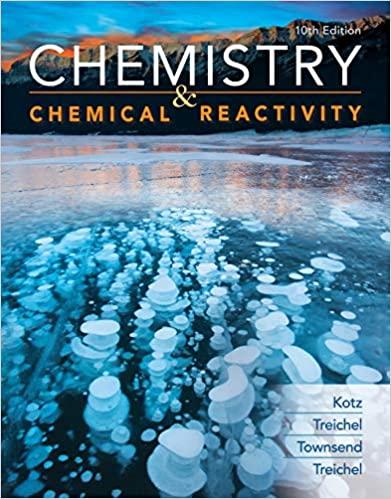Carbonyl bromide decomposes to carbon monoxide and bromine. K c is 0.190 at 73C. Suppose you place
Question:
Carbonyl bromide decomposes to carbon monoxide and bromine.
Kc is 0.190 at 73°C. Suppose you place 0.500 mol of COBr2 in a 2.00-L flask and heat it to 73°C (see Study Question 17). After equilibrium has been achieved, you add an additional 2.00 mol of CO.
(a) How is the equilibrium mixture affected by adding more CO?
(b) When equilibrium is reestablished, what are the new equilibrium concentrations of COBr2, CO, and Br2?
(c) How has the addition of CO affected the percentage of COBr2 that decomposed?
Data given in Question 17
Carbonyl bromide decomposes to carbon monoxide and bromine.![]()
Kc is 0.190 at 73°C. If you place 0.0500 mol of COBr2 in a 2.00-L flask and heat it to 73°C, what are the equilibrium concentrations of COBr2, CO, and Br2? What percentage of the original COBr2 decomposed at this temperature?
Step by Step Answer:

Chemistry And Chemical Reactivity
ISBN: 9780357001172
10th Edition
Authors: John C. Kotz, Paul M. Treichel, John Townsend, David Treichel





